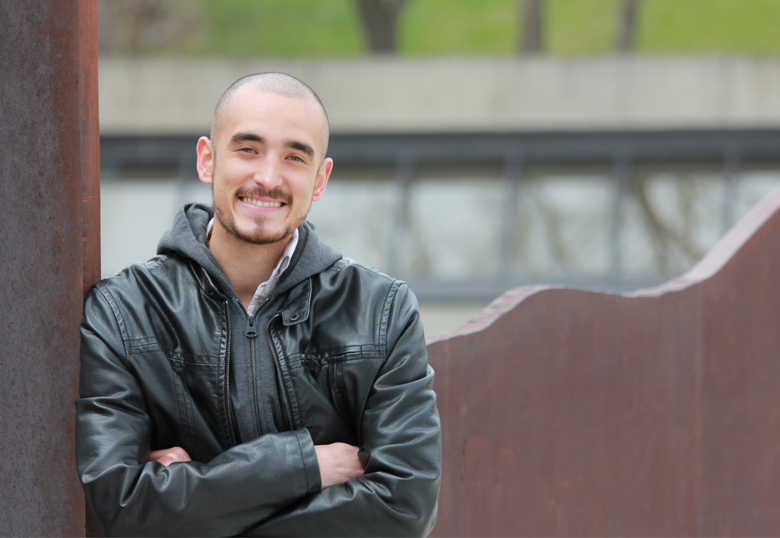An interest in researching the evolution of human sexual behaviour has netted Francisco Gomez Jimenez, a master’s student studying under Dr. Paul Vasey at the University of Lethbridge, membership in an elite group.
Gomez Jimenez has been awarded an Early Career Grant through the National Geographic Society. The society’s website indicates it has awarded more than 11,000 grants for research, conservation and exploration to forward-thinking students. The Early Career Grant provides funding for individuals to have their first opportunity to lead a project, whether it involves exploration, scientific research, conservation, education or storytelling. In so doing, the National Geographic Society aims to cultivate young leaders around the world.

“In March, I received an email saying ‘Congratulations,’ and I was thrilled,” says Gomez Jimenez. “To think that the National Geographic Society thought my work was interesting enough for them to fund is amazing.”
The award of nearly $5,000 will allow Gomez Jimenez to continue his research into how male homosexuality has survived through time even though it’s not logical from an evolutionary point of view.
“One of the things we do is try to understand how a trait such as male homosexuality, which is costly from an evolutionary perspective, can survive and be passed on through generations when these homosexual males are not reproducing themselves,” he says. “Across the world, we tend to see around one to five per cent of the male population being homosexual.”
The archaeological record—cave and pottery art, specifically—provides early evidence of homosexual behaviour. Scientists like Gomez Jimenez want to know how a trait that inhibits reproduction survives over the centuries and is found all over the world. One of the hypotheses is called kin selection, where the cost of not reproducing is offset if a homosexual male enhances the survival and reproduction of his close relatives who share common genes.
Previous research by Vasey in Samoa, a culture that recognizes the fa’afafine as a third gender, has shown these same-sex attracted males tend to be avuncular, or uncle-like, in their behaviour. They invest time and resources in their nieces and nephews, something that gay men in North America typically don’t exhibit.
Vasey’s research has also demonstrated that the transgender form is the ancestral form of male homosexuality. Given this, the members of Vasey’s lab suspect that in cultures where the transgender form of male homosexuality is more common, like the fa’afafine and the muxes of the Istmo Zapotec culture of southern Mexico, the social environment is more likely to be conducive to the expression of avuncular behaviour.
A further grant from Sigma Xi, the Scientific Research Honor Society, will allow Gomez Jimenez to explore another idea about the evolutionary paradox of male homosexuality. The Sexually Antagonistic Gene Hypothesis suggests that genes associated with male homosexuality, while they reduce reproduction when present in males, will increase reproduction when present in their female relatives. Tests of this hypothesis in Western cultures have been inconclusive but this may be due to overall low reproduction rates. Gomez Jimenez will test the hypothesis in the Istmo Zapotec, where reproduction rates are much higher. The Sigma Xi Grants-in-Aid of Research program is highly competitive, with only about 15 per cent of applicants being successful.
Gomez Jimenez, currently a master’s student who expects to start a PhD later this summer, plans to travel to Mexico in November to pursue his research project. He’ll be interviewing muxes and straight men to further test the kin selection hypothesis.
Originally from Puerto Rico, Gomez Jimenez completed a bachelor of science in biology at the University of Puerto Rico (UPR). He worked on research projects with Dr. David Logue, a former post-doctoral fellow at the U of L who was then a professor at UPR. When Logue returned to the U of L, he recommended Gomez Jimenez to Vasey. Vasey had been looking for a student who could speak Spanish and was interested in human sexuality. Gomez Jimenez jumped at the chance.
“I felt blessed and was very happy about it,” he says. “I’ve always been interested in the evolution of human sexual behaviour and have found it fascinating.”
